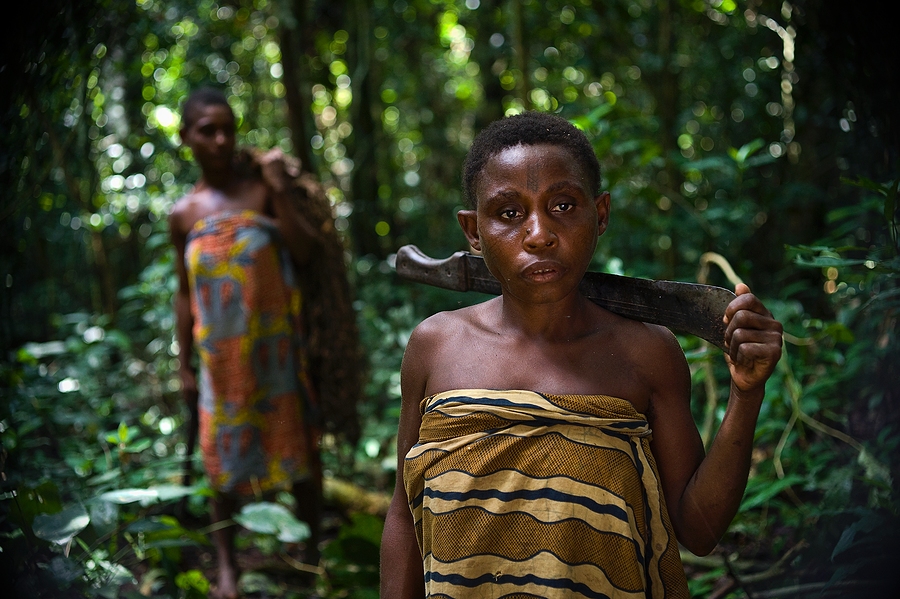
October 02, 2023

Women of a tribe of Pygmies
Source: Bigstock
By a letter dated 25 September 2023 the American Anthropological Association and the Canadian Anthropology Society have declined to allow a panel of presenters to go ahead with a discussion at their upcoming convention. The title of the offending presentation? According to the letter, it is “Let’s Talk about Sex Baby: Why biological sex remains a necessary analytical category in anthropology.” The reason appears unrelated to the lack of a comma after the word “sex” in the presentation’s title. If “sex baby” is the authors’ error and not that of the associations, one might be forgiven for thinking it should have guaranteed acceptance of the proposed discussion, given current intellectual fashions.
I am not familiar with the scholars who proposed to give this talk, but the subtitle of the proposal gives the game away: that biological sex is an important category in the field of anthropology. Indeed, the twin associations inform us that the panel discussion could not be tolerated because “the ideas were advanced in such a way as to cause harm to members represented by the Trans and LGBQTI of the anthropological community as well as the community at large.” Quite a statement! Apart from the implication that the hopeful panelists intended to harm a subset of the anthropological community through their speech, the writers of the letter tell us that all anthropologists would have suffered as well. Is this mere overstatement or a slur? Perhaps the associations could not resist the rhetorical advantage of exaggerating the danger posed by these misguided panelists.
The aspiring panelists dare to regard sex as an important category—this is obvious because they risked academic snubbing by the mere assertion of the fact. How could they have made this error? Is it simply because they are behind the times? I suggest instead that they were seduced by biological sex because it is real. That is, not only real, but easily observable. We have the evidence of our eyes and personal experience. It takes a good deal of effort to deny reality, though it’s not impossible—many have done it under the influence of threats, or propaganda techniques akin to those used in advertising or academia whereby the victim may be cajoled into denying the self-evident.
Is there anything hopeful to be taken from this situation? Perhaps so. The intellectual capture of these anthropological institutions may, in a small way (or perhaps not so small a way), lead to a fruitful, if recursive, field of anthropological study. To see this clearly, ask yourself what, exactly, modern anthropologists do, apart from attending conferences, thrusting a wet finger into the political winds, policing each other’s opinions, and spreading their influence by holding classes. My impression is that some still go out in the world and observe foreign and, as we used to say, exotic cultures. They befriend their subjects, learn their folkways, their languages, their rituals, and their taboos and, from this study, distill those elements that are common to humanity and explain those that are unique. The proper study of mankind is man, and that sort of thing.
I suggest that the time has come for those anthropologists in search of new territories or peoples, as it were, take up the study of—anthropologists. This sounds marvelously self-absorbed, and so it is. But that’s the fashion these days. And consider: From the evidence of their letter it is clear that these anthropological associations regard themselves as a community and that this community holds beliefs foreign to those of ordinary people. Please forgive the constant use of the term “community.” Its unrelenting appearance these days is trying, but let us take these associations at their word. To be a community is to have things in common. Doubtless these up-to-the-minute anthropologists have their own knowledge, perhaps even their “own truth,” as some like to believe these days. They must have their own customs, rituals (conferences?), dress (lanyards with names and, no doubt, pronouns). And, perhaps most important of all, their own official beliefs, differing from those of outsiders, about biological sex.
Daring undercover anthropologists could conduct field studies of the anthropological community itself, as they are possessed of several advantages. Camouflaged by convincing jargon, and with their lanyards flapping about, they could blend invisibly into the rituals that bind the anthropological community and thus probe its metaphysical beliefs about sex and gender—and who knows what else? Once armed with the skills gained from this experience, these researchers could infiltrate other fields, elucidating for the general public the arcane beliefs and practices of other studies now sheltering among the humanities. Safety is a concern, as always, in dealing with those who wish to protect their cultures from nefarious outside influences, so adventurous anthropologists must be willing to take chances. They may take comfort, however, in knowing that they are unlikely to face the same dangers as their predecessors a century ago. Cancellation, doxing, and loss of professional status may be the worst of them.
I don’t write from experience; I have not studied anthropology beyond reading enough of James Frazer’s The Golden Bough to be impressed at how irrationally primitive man thinks. But is primitive man alone in this? A troubling question to anyone who has spent a few hours on Twitter. And what might Frazer have made of the humanities department of a modern university? A question for another day. In the meantime, any anthropologist with a taste for adventure should consider the sort of exploration here proposed. Quite apart from advancing the frontiers of knowledge (as they used to say), there are professorships, tenure, grants, and other good things for the successful pioneer.